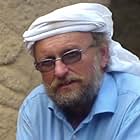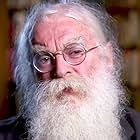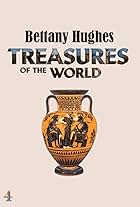The untold story of CivilizationsThe untold story of CivilizationsThe untold story of Civilizations
Photos
Featured reviews
The point of this documentary seems to be introducing historically uniformed people to the legacy of civilisations they probably don't know much about, and how that legacy is intertwined with important and well-known periods of history like ancient Greece, the Renaissance, etc. Yet the narration constantly contradicts the whole 'intertwined' idea by dichotomising East and West. I know it's in the title, and is the theme of the series, but they've taken it much too far, as there are several segments in just the first episode, a few minutes long each, where every single sentence contains the words 'East' and 'West'. Even when the point is that there was no such distinction between East and West in the period/location they're talking about. It's not only bothersome, but demonstrates that whoever approved the final version of this production was not aware of or did not understand what the series was talking about.
This, and some suspect pieces of information presented, lead me to believe that this documentary was not as thoroughly researched as it should have been, and instead focused on fitting whatever relevant segments it could find into its theme of 'East to West'.
Still, it should be mentioned that, if you can persist through the aforementioned 'East' and 'West' heavy segments, there's a fair amount of interesting information available.
This, and some suspect pieces of information presented, lead me to believe that this documentary was not as thoroughly researched as it should have been, and instead focused on fitting whatever relevant segments it could find into its theme of 'East to West'.
Still, it should be mentioned that, if you can persist through the aforementioned 'East' and 'West' heavy segments, there's a fair amount of interesting information available.
I saw this documentary on a long flight and it kept me awake and wanting to know more about the civilizations portrayed. It presents a view of history from a fresh, new perspective, effectively drawing the legacy that middle eastern civilizations gave our world. There are many fascinating facts, well-narrated and filmed, with a bold historical perspective, refreshing to the official history of the western world. I am very interested in buying the series. Reading the other reviews, I don't know if all the facts are 100% accurate, but what I do know that is true is presented with extraordinary quality. I see few flaws in this production. If anybody knows how I could inform me how to buy it, I would be very interested in purchasing it.
I was moved to write this review in response to the episode entitled The Triumph of Monotheism. I like the general theme of this series however I have an issue with this particular offering. It really bugged me that the narrator continually referred to Monotheism as a pre condition to the flourishing of western culture. Really!!! Why? That question was never asked which I found very disappointing. The Romans did pretty well for hundreds of years worshiping multiple gods so what's so inferior with that system of religion? I'm agnostic so religion isn't an important part of my life. In spite of that I find it disturbing that a documentary pre supposes the superiority of one form of religious belief without any evidence to back it up. Makes me question the quality of the writing in the rest of the series. And just lastly can someone please make a history doco without the gushing presence of Bettany Hughes.
I was looking for a comprehensive documentary covering the history of Central Asia and this was a great find. The sequence of episodes starting from pre-Roman times to spread of Islam to Turkey to modern times was perfect! Episode 1 started on the right tone with some interesting pieces of information. And then from Episode 2 onwards it seems the documentarians came together and aligned what's the main motif we want to get through the documentary - and the rest are just partial, half-baked parts of history which align with the message.
For eg, in Ep 4 on Renaissance the documentary focuses highly on how the East enabled Renaissance because it translated the Greek books of the yore but complete ignored the rest of the history between 600AD to 1500AD which was marked by murderous raids all over the world from east to west. Again in episode 5 it focuses on some of architectural wonders built by the Mughals & Mongols but completely ignores what funded these conquests and the brutality and beastiness the rulers displayed. The knowledge experts the documentary uses to make a point are so biased themselves that its almost jarring - repeatedly saying the same thing ad nauseum
Its one thing to worship the best of what a region/ sect has to offer, and its complete 'fake news' when you harp on just some random facts and use it to draw a wider conclusion.
A very partial view of history for some self-conceited reasons.
For eg, in Ep 4 on Renaissance the documentary focuses highly on how the East enabled Renaissance because it translated the Greek books of the yore but complete ignored the rest of the history between 600AD to 1500AD which was marked by murderous raids all over the world from east to west. Again in episode 5 it focuses on some of architectural wonders built by the Mughals & Mongols but completely ignores what funded these conquests and the brutality and beastiness the rulers displayed. The knowledge experts the documentary uses to make a point are so biased themselves that its almost jarring - repeatedly saying the same thing ad nauseum
Its one thing to worship the best of what a region/ sect has to offer, and its complete 'fake news' when you harp on just some random facts and use it to draw a wider conclusion.
A very partial view of history for some self-conceited reasons.
It would be nice if the accuracy of such a documentary could be relied on, but there are so many mistakes and contradictory statements in this film that even the accurate information becomes suspect.
Just one of many examples is in episode 3, which is giving a history of the Arabs. The narrator says in the beginning that the Arabs were a scattered group of nomadic tribes until Mohammed came along. Then for the next half hour of the episode they describe the various civilizations, kingdoms, cities, and states that the Arabs established before Mohammed came on the scene. It is hard to equate the bustling state of the Nabataeans or the city of Damascus with "nomadic tribes".
It is sad, because the visual scenery and on location settings obviously took a lot of money and time to produce, but the writing is flawed. Producing a historic documentary ought to include making certain that the actual history being told is accurate and consistent.
Just one of many examples is in episode 3, which is giving a history of the Arabs. The narrator says in the beginning that the Arabs were a scattered group of nomadic tribes until Mohammed came along. Then for the next half hour of the episode they describe the various civilizations, kingdoms, cities, and states that the Arabs established before Mohammed came on the scene. It is hard to equate the bustling state of the Nabataeans or the city of Damascus with "nomadic tribes".
It is sad, because the visual scenery and on location settings obviously took a lot of money and time to produce, but the writing is flawed. Producing a historic documentary ought to include making certain that the actual history being told is accurate and consistent.
Details
- Release date
- Country of origin
- Language
- Also known as
- Från öst till väst - Mellanösterns historia
- Production companies
- See more company credits at IMDbPro
- Runtime52 minutes
- Color
Contribute to this page
Suggest an edit or add missing content










